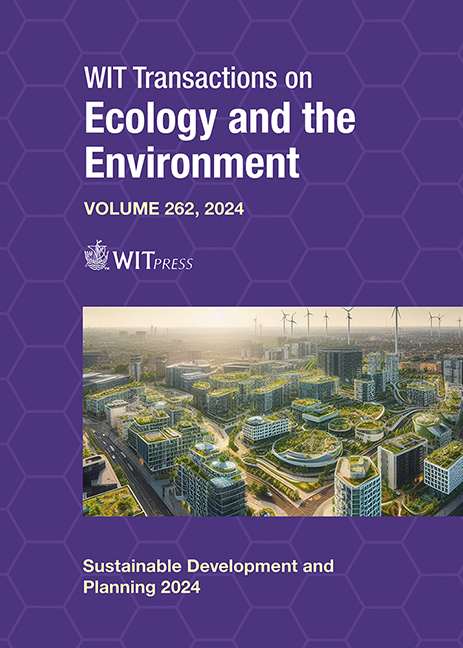DATA COLLECTION FOR LIFE CYCLE ASSESSMENT OF BIOMEDICAL SOLID WASTE TREATMENT AND DISPOSAL: A CASE STUDY IN ULAANBAATAR, MONGOLIA
Price
Free (open access)
Transaction
Volume
262
Pages
13
Page Range
991 - 1003
Published
2024
Paper DOI
10.2495/SDP240821
Copyright
Author(s)
ADA CASTELLUCCI, ENKHDUL TUUGUU, FRANCESCO ROMAGNOLI, GIANLUCA MAGRINI, MARCO RAGAZZI
Abstract
The safe and environmentally friendly management of healthcare waste (HCWM) is a significant concern in many low and lower-middle income countries. Despite recent and ongoing efforts to improve treatment technologies and waste disposal in Mongolia, the current HCWM system in Ulaanbaatar city still presents important margins for improvement. Currently, a private company manages the collection, transport, treatment and disposal of healthcare waste from most of the hospitals in the city through a private–public partnership. The waste is transported to a decentralised site consisting of an autoclave, an incinerator and a landfill, where some environmental concerns exist. As part of a UNICEF project, three electric sterilisers based on frictional heat technology were installed in three hospitals in Ulaanbaatar to treat biomedical waste on-site in a more sustainable way than incineration and landfill. The sterilised output material is reduced in volume by 70% and is disposed of as common waste in landfills. Our study aims to conduct a preliminary life cycle assessment (LCA) to compare the environmental impacts of the current HCWM system in Ulaanbaatar with the new on-site sterilisation. This paper aims to define the goals and scope of the LCA and the inventory analysis to understand all the input data required to conduct the LCA. The analysis is being carried out in a context of data scarcity, where only a few similar studies exist. Therefore, a combination of local data collection, literature, LCA databases and previous LCA studies on the same steriliser must be used. Further research could combine the results of the LCA with an economic and social sustainability analysis to support key stakeholders in the health and environment sectors in decision-making processes to improve the HCWM system in Ulaanbaatar.
Keywords
healthcare waste management, incineration, biomedical waste sterilisation, life cycle assessment, inventory form, sustainable development





